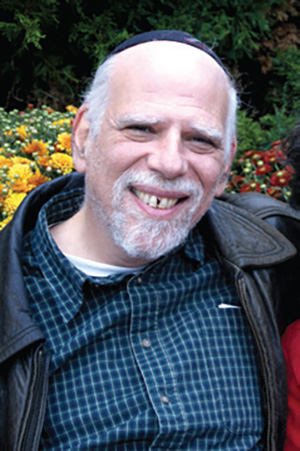
Imagine the following:
– Avi, a 7th grader, doodles during history class and gazes out the window.
– Maya, an 11th grader, mumbles the words of Shacharit in a totally detached manner.
– Zach, a 9th grader, speaks to his teachers very disrespectfully.
Now imagine that Avi no longer doodles, but focuses; Maya no longer mumbles, but davens with kavana; Zach no longer treats his teachers with chutzpah, but respect. Does this transformation sound too good to be true? Not really. What might have been the cause for these changes? In a word: Mindfulness.
Mindfulness is defined as training the brain to pay attention:
on purpose
in the present moment
non-judgmentally
Sound simple? Yes, it does! But like many skills, it must be taught and practiced frequently. Studies have shown that students trained in Mindfulness strategies tend to perform better on academic tasks, in addition to coping better under stressful and anxiety-provoking situations. Stress and anxiety are products of our own manufacturing, and are often predicated on past traumatic events or on fears about unknown future events. When students learn how to live in the present moment and not preoccupy themselves with unsettling past memories or on unknown future events, they tend to feel more confident and secure. Mindfulness has also been demonstrated to help students and adults in physical ways, for example, controlling their weight and lowering their blood pressure.
I recently had the privilege to present to the administrators and teachers in a professional development program at Ma’ayanot Yeshiva High School for Girls on the concept of Mindfulness and how it can be integrated into Jewish education. In addition to demonstrating how Mindfulness can benefit students’ educational, emotional and psychological well-being, we also explored ways in which Torah values and Jewish tradition intersect with the underlying concepts of Mindfulness. Introducing Mindfulness can empower students to improve their concentration in prayers, sensitivity toward others and overall behavior and midot. I even demonstrated how Mindfulness can help students overcome the onslaught of technology, which can cause a student to swiftly move out of the moment and become easily distracted from the important tasks at hand. Mindfulness has the ability to refocus and re-center students, thereby allowing them to choose on their own to turn off the device without requiring adult (parental/teacher) supervision, monitoring and consequences.
The following are some frequently asked questions about Mindfulness, similar to ones asked by the Ma’ayanot faculty:
Q- What is the best way to introduce Mindfulness into our school?
A- I advise not only training the students, but including the entire academic community: teachers, board members, administration and parents. Everyone should be part of the transformation process.
Q- What benefits can be seen by incorporating Mindfulness into the school?
A- The following are a few examples of frequently reported changes:
Improved academic performance
Decreased behavioral incidents
Greater sense of cooperation vs. competition
Improved communication and sense of community
Q- Can you give a specific example of how mindfulness can be incorporated at Ma’ayanot?
A- I suggest that Mindfulness can become a central part of your overall academic curriculum. Imagine every teacher starting off every class with a one minute meditation exercise. What an impact that one minute would have on the remaining 39 minutes! Additionally, Mindfulness can be introduced into your tefillah program, thereby yielding a more meaningful, focused and spiritual prayer experience.
Q- I see the value in Mindfulness, but it seems difficult to introduce to high school students. What do you recommend?
A- Mindfulness can be incorporated into your life at any age. The earlier in your life cycle, the easier it is to integrate. Therefore, I recommend introducing Mindfulness earlier into a child’s educational experience. Children can start learning the concept and practice exercises to help them learn how to control their thoughts and emotions and to ultimately enable them to make better choices in the present moment.
My hope is for Mindfulness to be incorporated in all educational programs beginning in early childhood and accompanying the students throughout their educational careers. I believe that the most effective implementation of Mindfulness would include a training program for students, as well as one for their parents and educators. In my next article I plan to demonstrate how a Mindful existence is consistent with and supports Jewish values, practices and observances. A Mindful existence is designed to keep us in the present moment and encourage us to make the best possible choices at any given point in time.
I can be reached at [email protected], (201) 906-8473, and you will be able to follow my Facebook page @MindfulerRebbe in the near future.










